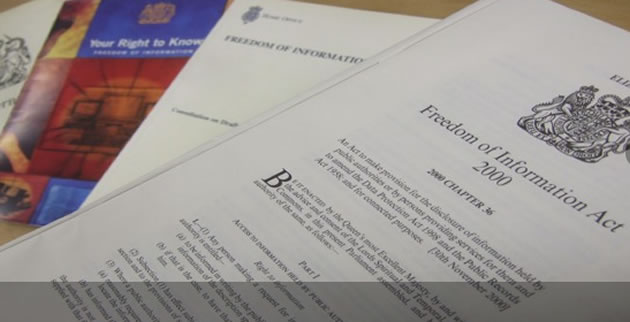Hounslow Council 'Slowest' To Respond To Freedom Of Information Requests
Report finds most London councils fail to comply with the FOI time limit

A report has found that Hounslow Council was the worst performer of London councils in responding to Freedom of Information (FOI) requests.
Hounslow council answered only 60% of requests within the Act’s 20 working day deadline according to figures provided by the Campaign for Freedom Of Information.
Lewisham answered only 61% of requests on time, Bromley 64%, Enfield and Hackney both managed just 66%, Harrow 68% and Croydon 69%
The Information Commissioner (IC), who enforces the FOI Act, expects authorities to answer at least 90% of requests on time. The report says 25 London councils fell short of this target in 2017/18.
Some London councils are failing to comply with the Freedom of Information (FOI) Act’s time limits in as many as 40% of the requests they receive, causing long delays before information is released.
The scale of the problem has been obscured by the fact that many of the underperforming councils publish no statistics on their handling of requests, according to a report by the Campaign for Freedom of Information. It says these problems are unlikely to be restricted to London councils.
The report (FOI Good Practice: A Survey of London Local Authorities) also reveals that some councils have special procedures for handling requests likely to attract unwelcome publicity, which the Campaign says are themselves cause for concern.
The Campaign says that according to the most recent annual statistics Hounslow council in answered only 60% of requests within the Act’s 20 working day deadline. Lewisham answered only 61% of requests on time, Bromley 64%, Enfield and Hackney both managed just 66%, Harrow 68% and Croydon 69%
Some councils did much better. The City of London answered 97% of requests within 20 working days, Barnet and Tower Hamlets answered 96% on time, Barking & Dagenham and Richmond both answered 93% on time, Redbridge 92%, Brent 91%, the Greater London Authority and Greenwich both answered 90% of requests on time.
The Campaign also had to complain to the Commissioner about delays by Hackney, Kensington & Chelsea, Wandsworth and Westminster councils.
The IC’s published decisions highlight many other cases of unacceptable delays by London councils, including three involving Lewisham. One of these involved a request that was still unanswered after 231 working days - more than eleven times the permitted limit.
• Nearly a third of London councils don’t publish figures
showing how many requests took longer than the permitted time limits.
Most of these (9/12) are in the bottom half of the performance table
• 30 of the 34 councils publish no statistics on how many requests
they answer or refuse
• Most councils don’t say how long they take to reply to any
requests not answered on time. There is no way of knowing whether deadlines
have been missed by just a few days or many months.
Some London councils have substantially improved their performance over recent years. The report says Brent council went from answering only 55% of its requests on time in 2013/14 to 91% on time in 2017/18 and Greenwich council which went from answering only 37% of requests on time in 2013 to 90% on time by 2017.
Councils have been able to improve performance by using software which tracks requests and warns of approaching deadlines, by monitoring their own performance and by making previously disclosed information available on their websites, so that the wider public not just the requester can use i
The Campaign says the Information Commissioner’s Office (ICO) has failed to keep up pressure for improvements on authorities which persistently breach legal deadlines. The ICO used to publicly name and monitor under-performing bodies. In 2010 it monitored a total of 33 authorities, including 7 London councils. But in 2016 and 2017 it monitored only 2 authorities each year across the whole country. Not a single authority was monitored in 2018.
It has also failed to use its power to issue enforcement notices, which could require an authority to deal with all overdue requests by a set deadline. The Campaign says the IC’s office has focused heavily on data protection issues over recent years, with far less attention going to serious FOI problems. The imbalance ‘urgently needs to be addressed’ it says.
The Campaign For Freedom Of Information seeks to improve and defend the
Freedom of Information Act. They advise the public about their rights
to information under FOI and related laws, help people challenge unreasonable
refusals to disclose information, encourage good practice and provide
FOI training.
March 16, 2019